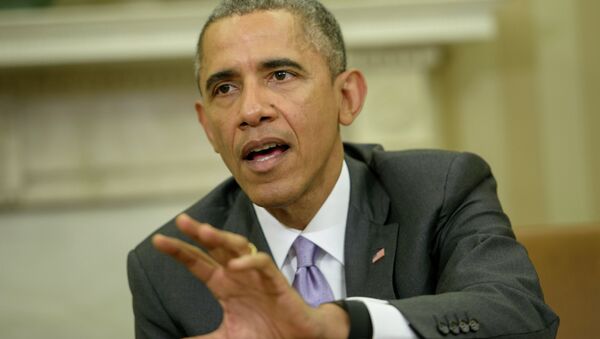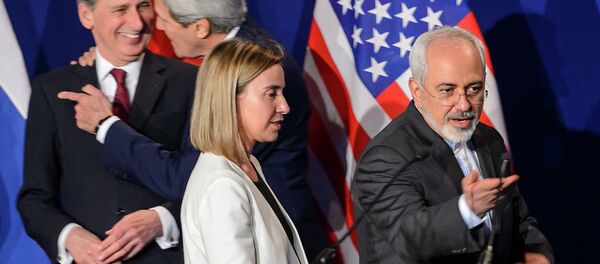The comments come from an interview with the New York Times, in which Obama delved deeper into the tentative nuclear agreement brokered last week between Iran and six world powers, and discussed the ramifications of the framework on the US’s allies in the Middle East.
He noted that while Arab allies, specifically Sunni Gulf states, have been weary of the agreement with Iran, they may have to contend with more serious internal risks than a possible attack from the Shiite regional power.
“I think the biggest threats that they face may not be coming from Iran invading,” He said. “It’s going to be from dissatisfaction inside their own countries.”
Obama said these internal threats come from “populations that, in some cases, are alienated, youth that are underemployment, an ideology that is destructive and nihilistic, and in some cases, just a belief that there are no legitimate political outlets for grievances.”
Speaking about what the US will do to protect its Gulf allies, Obama reiterated his willingness to provide military support and bolster their defensive capabilities in case of external aggression, but said that more was needed from the states’ own leadership to address these internal threats.
“I can send a message to them about the US’s commitments to work with them and ensure they are not invaded from the outside…What I can’t do, though, is commit to dealing with some of these internal issues that they have without them making some changes that are responsive to their people.”
“And so part of our job,” He added, “is to work with these states and say, ‘How can we build your defense capabilities against external threats, but also, how can we strengthen the body politic in these countries, so that Sunni youth feel that they’ve got something other than [the self-proclaimed Islamic State] to choose from.”
Saudi Arabia and other Gulf states have viewed the deal with skepticism, worried that a nuclear armed Iran would pose a threat to Sunni states and tip the balance of power in the region. Saudi King Salman bin Abdulaziz al-Saud welcomed the deal last week, but only cautiously. In a phone call with the US President, King Salman said he hoped a final settlement with Iran, slated for June 30th, would “strengthen the stability and security of the region and the world.”
Obama has also spoken with the other Gulf Cooperation Council (GCC) leaders and invited them to meet with him in Camp David this spring to discuss the tentative deal before a final agreement is reached with Iran in June.




